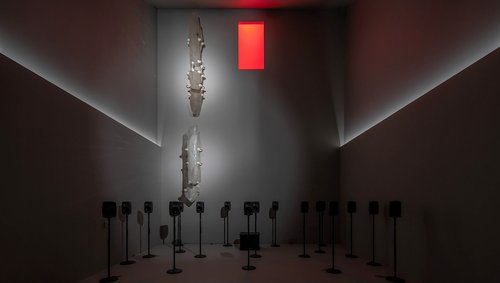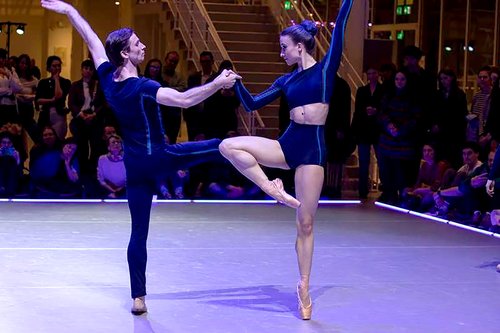The Queen of Spades. Photo by Brescia e Amisano. Courtesy of Teatro alla Scala
Talent Drain Mires Russia’s Classical Music Scene
Once a bastion of the international opera and classical music scene, Russia is now scrambling to adapt to a new austerity in which some of its brightest musical talents have moved abroad and international orchestras and renowned musicians from Western Europe and North America no longer perform in its world-class, domestic concert halls.
Since February 2022, Russian culture has changed irrevocably. In the sphere of opera and music it has been most acutely felt, it is hard to see how all the losses can be compensated, and it is a situation that is felt most not in the Russian regions, but in its capital cities, Moscow and St Petersburg.
Moscow had long been a global musical destination, an unrivalled locus of philharmonic life. Posters with star billings of the Moscow Philharmonic or the White Nights Festival at the Mariinsky Theatre in St Petersburg were on a par with those in Berlin, Paris or New York. On 24th of February 2022 the premiere of Wagner's opera Lohengrin took place at the Bolshoi in Moscow which was to be the second of three co-productions with New York’s Metropolitan Opera, unprecedented in the history of both theatres.
The Moscow Philharmonic used to host the world's most famous and talented musicians and music ensembles, including symphonic orchestras such as the Chicago Symphony with Riccardo Muti, the Berlin Philharmonic with Simon Rattle, the Vienna Philharmonic first with Daniel Barenboim and then with Christian Thielemann - who staged all of Beethoven's symphonies, the entire cycle over four evenings, an extremely rare event anywhere. Not to mention Russia itself had its own fare share of exceptional talent, both homespun and imported.
Yet today philharmonic life in Russia has virtually disappeared. After February 2022 there were two immediate challenges for producers and the managers of concert halls: how to save existing playbills by quickly replacing musicians who were refusing to co-operate with Russian institutions, and subsequently how not to lose audiences – especially in Moscow - accustomed to those international stars, the crème de la crème from the classical music world.
Among the most painful losses to Russian audiences are singer Anna Netrebko (b. 1971), pianist and conductor Mikhail Pletnev (b. 1957), conductors Vladimir Jurowski (b. 1972) and Vasily Petrenko (b. 1976), and Vladislav Uryupin (b. 1985). Even during the pandemic, pianist and conductor Mikhail Pletnev had declared a sort of boycott of Russia in protest against the national vaccination policy and he remained abroad at that time, meeting up with his Russian National Orchestra only during international tours. The beginning of the armed conflict put a stop to any question of a return to his homeland. Russia’s Ministry of Culture, the founder of the Russian National Orchestra, was initially patient with Pletnev’s position and did not immediately terminate his contract but later was forced to do so. For several more months the orchestra remained without a leader, and then it hired Alexander Rudin (b. 1960), who has continued also to work for his chamber orchestra Musica Viva and a host of other projects.
Since then and now living abroad, Pletnev has announced the creation of the Rachmaninoff International Orchestra, which has brought together musicians from several different countries, including Russia and has performed two concerts. In early September 2022, in an interview with the Croatian online publication Vecernji list Pletnev commented: "Wars are driven by a thirst for revenge, and that is not good for anyone. If you want to break this vicious circle, you must do something good, not multiply crimes. The good I can do is music”. Pletnev has virtually lost the opportunity to conduct, and his schedule now consists mainly of solo piano concerts (while in Russia he had played the piano rarely in fact most recently, he had even stopped his career as a pianist to concentrate on conducting).
The Evgeny Svetlanov State Orchestra of Russia and Moscow's New Opera theatre are still in a state of decapitation. The Bolshoi Theatre has also been without a musical leader for about two years, as its music director Tugan Sokhiev (b. 1977) left both the Bolshoi Theatre and the Toulouse Capitol Orchestra, which he had led, in protest due to ideological pressures. "Over the past few days, I have witnessed something I thought I would never see in my life. In Europe today, I am being forced to make a choice and favour one member of my musical family over another. Being forced to face an impossible choice between my favourite Russian musicians and my favourite French musicians, I have decided to resign from my position as Music Director and Principal Conductor of the Bolshoi Theatre in Moscow and I am resigning as Music Director of the Orchestre National du Capitole de Toulouse,’ said the conductor. Formally, the Bolshoi is still without a music director, as Valery Gergiev (b. 1953) has officially been appointed its General Director.
During the 2010s Vladimir Jurowski had been at the helm of the Evgeny Svetlanov State Orchestra of Russia. From a Moscow musical dynasty, he grew up in Germany where he built his career. His invitation to the post of Artistic Director of this orchestra was well received by the public at large, and he seemed indispensable. Jurowski’s long-running Philharmonic cycle ‘Stories with the Orchestra’, in which he performed interesting if not unusual thematic programmes and spoke eloquently about music, attracted both professionals and newbies to the concert hall. He had been planning to continue this series even after he left his post in 2021 when he took up the position of music director of the Bavarian Opera, one of the most prestigious theatres in Europe.
In the early days of the Russian invasion of Ukraine, during one of his concerts, Jurowski replaced a performance of Tchaikovsky's ‘Slavonic March’ (where the theme of the Russian Empire's anthem ‘God Save the Tsar’ is played) with a rendition of the Ukrainian national anthem. Jurowski became one of the few musicians who publicly expressed an anti-war stance, emphasizing his belief that music cannot be outside politics.
At the same time, Jurowski does not believe that Russian art or Russian musicians should be banned: “I very much expect that despite the almost complete rupture between Russia and Europe, between Russia and the Western world, there will not be a gap in our cultural ties. We all – and here I am speaking, of course, not only of myself and my Western colleagues, but also of many European politicians and public figures – must make and are already making every effort to ensure that Russian art continues to be an important part of the world cultural stratum, and that artists from Russia remain part of the world cultural community,” he said in an interview to Russia’s Musical Life magazine.
Vasily Petrenko (b. 1976), a charismatic Russian conductor who had replaced Jurowski remained in a kind of state of suspension for a long time perhaps hoping for a quick resolution of the military invasion and ensuing conflict, and when this did not happen, he left Russia and today he directs the Royal Philharmonic Orchestra in London. In an interview given in 2022 to Russia’s Kommersant newspaper he said: “I hope that one day I will have the opportunity to perform in Russia, and I am very much looking forward to that moment”.
The New Opera Theatre had pinned great hopes on Valentin Uryupin who was forced to resign from his position as musical director of the company because the founder of the theatre - the Moscow Department of Culture - found it anathema that Uryupin, a native of the Kharkov region, mourned in public acts of aggression towards the place in which he grew up. Uryupin gave a warm farewell to the theatre staff through an open letter and has never performed in Russia since, building up his career in the West.
Russian musicians have not completely been blocked in the West, cancel culture is most focused towards those who are openly seen to be closely affiliated with the Russian president or the Russian state machine, such as Valery Gergiev and pianist Denis Matsuev (b. 1975) who have now been banned in the West. Anna Netrebko found herself under pressure from both sides and had to make a clear choice. After what people saw as undue hesitation, the singer came out in condemnation of the Russian invasion of Ukraine, thus losing the opportunity to perform in her homeland and at the same time she lost all the top contracts she had in the West. A victim of her popularity and visibility, she was forced to go back several gears in her career overnight. La Scala in Milan was initially the only top ten theatre to host her although now she has been allowed back onto the stage of the Berlin and Vienna State Operas on a sporadic basis. She found the doors to the Metropolitan firmly closed to her, after formerly packing its vast halls to the brim, sell out box office performances at the snap of her fingers.
Many Russian musicians are still able to perform both at home and abroad. Soprano Veronika Dzhioeva (b. 1979) and conductor Timur Zangiev (b. 1994) replaced ‘cancelled’ Anna Netrebko and Valery Gergiev in ‘The Queen of Spades’ in the spring of 2022 at La Scala which happily gave a powerful boost to the career of this midcareer conductor, and he will be making his debut at the Salzburg Festival this summer. Some Russians performers have been replaced by their compatriots because those with big media personalities were forced to express their opinion and position and regrettably, it has been musicians of the highest standing at the top of their careers who have become victims of cancel culture after the beginning of the armed conflict with Ukraine.
There is one musician who so far has managed to have feet on both sides, Teodor Currentzis (b. 1972). In Russia Currentzis runs a private orchestra called musicAeterna, which is sponsored by VTB Bank, whose shares are owned by the Russian Federation, and this has provoked protests from Western audiences, demanding that concerts featuring the conductor be banned. Markus Hinterhäuser, artistic director of the Salzburg Festival was forced to give an extensive interview in which he defended the right to invite Currentzis and musicAeterna to perform. In the end, he succeeded and this summer its musicians are once again performing at the world's most prestigious opera festival.
















